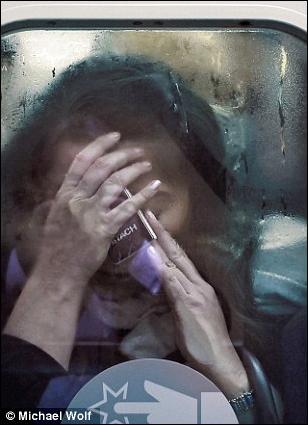NEW ORLEANS (AP) — Divers hired by the owner of an oil platform in the Gulf of Mexico that caught fire recovered a body in the waters near the site Saturday evening, according to the U.S. Coast Guard and the rig's owner.
Coast
Guard spokesman Carlos Vega said late Saturday that the remains of the
unidentified person were found by divers hired by Houston-based Black Elk Energy, who were inspecting the platform. Vega said the Coast Guard would be turning over the remains to local authorities.
John Hoffman,
the president and CEO of Black Elk Energy, wrote in an email late
Saturday that the body is apparently that of one of two crew members
missing since an explosion and fire on the oil platform Friday morning.
Hoffman said the body was found by a contract dive vessel at 5:25 p.m.
CST.
"Divers will continue to search for the second missing worker," Hoffman wrote. "Our thoughts and prayers are with the families."
Hoffman
said the body was found close to the leg of the platform, near where
the explosion occurred, in about 30 feet of water. He said the missing
men were employees of oilfield contractor Grand Isle Shipyard.
"We
have notified next of kin of all individuals involved, but in respect
for their families and their privacy, we will not be releasing their
names," GIS CEO Mark Pregeant said in a statement, according to WWL-TV
in New Orleans.
The news came shortly after the Coast Guard suspended a 32-hour-long search for the two missing workers
that covered 1,400 square miles (3626 sq. kilometers) near the oil
platform, located about 20 miles (40 kilometers) southeast of Grand Isle, La.
"We
have saturated the search area several times — the 1400-square-foot
area," Vega said. "We saw no signs of life. We have suspended the
search... pending further development. If we receive any credible
information that there are signs of life, we can resume the search at
any time."
Four other workers who were severely burned remained at Baton Rouge General Medical Center on Saturday night.
Coast
Guard Chief Petty Officer Bobby Nash said the Guard's search was ended
early Saturday evening. Helicopters and a fixed-wing aircraft had been
searching by air, while cutters and boat crews searched the sea.
The blaze erupted Friday morning while workers were using a torch to cut an oil line on the platform, authorities said.
Pregeant
stressed in his statement that the cause of the fire and explosion is
unknown, and said "initial reports that a welding torch was being used
at the time of the incident or that an incorrect line was cut are
completely inaccurate."
Four workers were severely burned, though Black Elk Energy spokeswoman Leslie Hoffman said their burns were not as extensive as initially feared.
Officials
at Baton Rouge General Medical Center said Saturday that two men
remained in critical condition, while two men remained in serious
condition. The four, being treated in a burn unit, are also employees of
Grand Isle Shipyard and are from the Philippines. The hospital said it and Grand Isle Shipyard are trying to reach the men's families in the Philippines.
Grand
Isle Shipyard employed 14 of the 22 workers on the platform at the time
of the explosion, WWL-TV reported. A man who answered the phone at the
company's Galliano, La., office on Saturday said no one was available to
comment.
Separate from the accident, Grand Isle Shipyard is
facing a lawsuit by a group of former workers from the Philippines who
claim they were confined to cramped living quarters and forced to work
long hours for substandard pay. The lawsuit was filed in late 2011 in a
Louisiana federal court and is pending. Lawyers for the company have
said the workers' claims are false and should be dismissed.
Meanwhile,
officials said no oil was leaking from the charred platform, a relief
for Gulf Coast residents still weary two years after the BP oil spill
illustrated the risk that offshore drilling poses to the region's
ecosystem and economy.
Friday's fire sent an ominous black plume
of smoke into the air reminiscent of the deadly 2010 Deepwater Horizon
explosion that transformed the oil industry and life along the U.S. Gulf
Coast
James A. Watson, the director of Louisiana's Bureau of
Safety and Environmental Enforcement, said in a statement Saturday that
his agency had begun "an investigation into the explosion and fire
aboard a Black Elk Energy production platform offshore Louisiana."
"BSEE
is committed to determining the direct and indirect causes of the
explosion and will take appropriate enforcement action," he said.
The
Deepwater Horizon blaze killed 11 workers and led to an oil spill that
took months to bring under control. Friday's fire came a day after BP
PLC agreed to plead guilty to a raft of charges in the 2010 spill and
pay a record $4.5 billion in penalties.
There were a few important
differences between this latest blaze and the one that touched off the
worst offshore spill in U.S. history: Friday's fire was put out within
hours, while the Deepwater Horizon burned for more than a day, collapsed
and sank.
The Black Elk Energy facility is a production platform
in shallow water, rather than an exploratory drilling rig like the
Deepwater Horizon looking for new oil on the seafloor almost a mile (1.6
kilometers) deep.
The depth of the 2010 well blow-out proved to be a major challenge in bringing the disaster under control.
The
Black Elk Energy platform is in 56 feet (17 meters) of water — a depth
much easier for engineers to manage if a spill had happened.
A
sheen of oil about a half-mile (800 meters) long and 200 yards (180
meters) wide was reported on the Gulf surface, but officials believe it
came from residual oil on the platform.
"It's not going to be an uncontrolled discharge from everything we're getting right now," Coast Guard Capt. Ed Cubanski said.
Hoffman,
the Black Elk Energy spokeswoman, said Saturday that there were still
no signs of any leak or spill at the platform site.
BP's blown-out
well spewed millions of gallons (liters) of oil into the sea, about 50
miles (80 kilometers) southeast of the mouth of the Mississippi River on
the east side of the river delta. The crude fouled beaches, marshes and
rich seafood grounds.
After Friday's blaze, 11 people were taken
by helicopter to area hospitals or for treatment on shore by emergency
medical workers.
The production platform is on the western side of the Mississippi River delta.
"This platform was not in operation and had been shut in since mid-August," Black Elk officials said in a news release Saturday.
Cubanski
said the platform appeared to be structurally sound. He said only about
28 gallons (106 liters) of oil were in the broken line on the platform.
David Smith,
a spokesman for the Interior Department's Bureau of Safety and
Environmental Enforcement in Washington, said an environmental
enforcement team was dispatched from a Gulf Coast base by helicopter
soon after the Coast Guard was notified of the emergency. Smith said the
team would scan for any evidence of oil spilling and investigate the
cause of the explosion.
Black
Elk Energy is an independent oil and gas company. The company's website
says it holds interests in properties in Texas and Louisiana waters,
including 854 wells on 155 platforms.
___
Associated
Press writers Kevin McGill in New Orleans and Jeff Amy in Jackson,
Miss., and Norman Gomlak and Greg Schreier in Atlanta contributed to
this story.












































